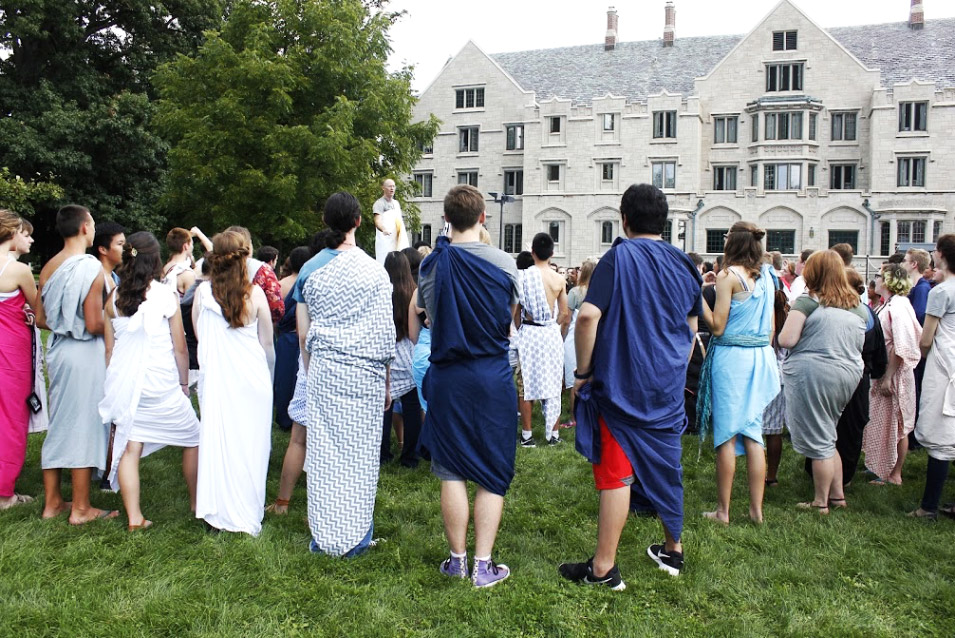September 2016 News
Plato on Trial
Friday, September 30, 2016

“It has come to our attention that one Aristocles, popularly known as ‘Plato,’ has been teaching at the grove of Akademos in the sanctuary of Athena to the north of the city proper.”
Students at the Indiana Academy have once again been summoned to the turtle in the yard between Burris Laboratory Schools and Ball State University’s Elliot Hall to participate in the Academy’s annual event, The Trial of Plato.
Students grabbed their sheets, ropes, and other ancient accessories then headed down to the yard where they were to be considered citizens of the ancient democratic Athens. Students salvaged around their dorms, friend’s dorms, and various other places to find articles that could create an outfit fit for the Athenian world.
Everyone present became a member of the Assembly where they discussed and debated the political philosophy of Plato.
What’s the issue?
Plato would regularly lead discussions on all sorts of topics that were sought to have no sense of propriety or recognition of the limits of public discussion, especially with young men present at the Academy.
The people of Athens received details of these discussions with regard to the right governing of a city. The magistrates got possession of written transcripts purporting to be Plato’s accounts of his own teacher Socrates’ ideas on this topic; all citizens were then advised to review the public copies of these alleged teachings.
Socrates, though a veteran of the fight against the Persian foe at the battle of Delion and elsewhere, and thus a good patriot, came under suspicion of teaching against the democracy (and worse), was convicted by a jury of his peers, and then chose a draught of hemlock to escape that judgment.
A possibility of Socrates’ ideas not dying with him arose. The fear of these political ideas has caused a necessary meeting and trial of Plato in which the students are engaged.

